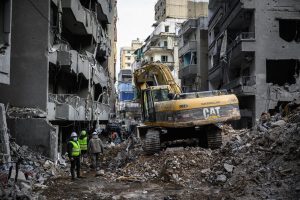
Israel's attacks on Laos have not stopped; on the contrary, they have intensified in light of the ceasefire agreements.
"Just today, Tuesday, November 26, they have around 35 bombs in Beirut alone," said journalist Manuel Ortiz from Lano, during the radio program Pensula 360 Press, with Marcos Gutierrez, host of the program.
